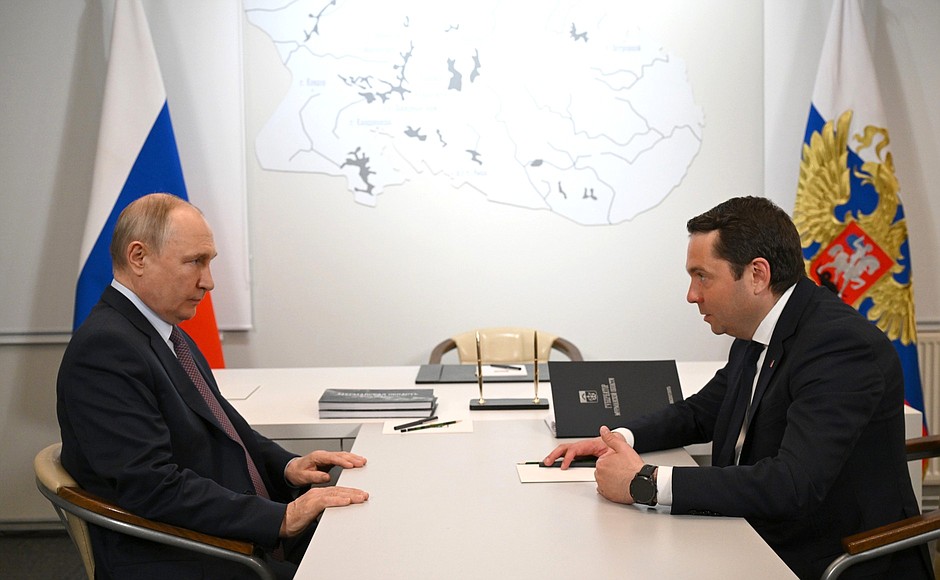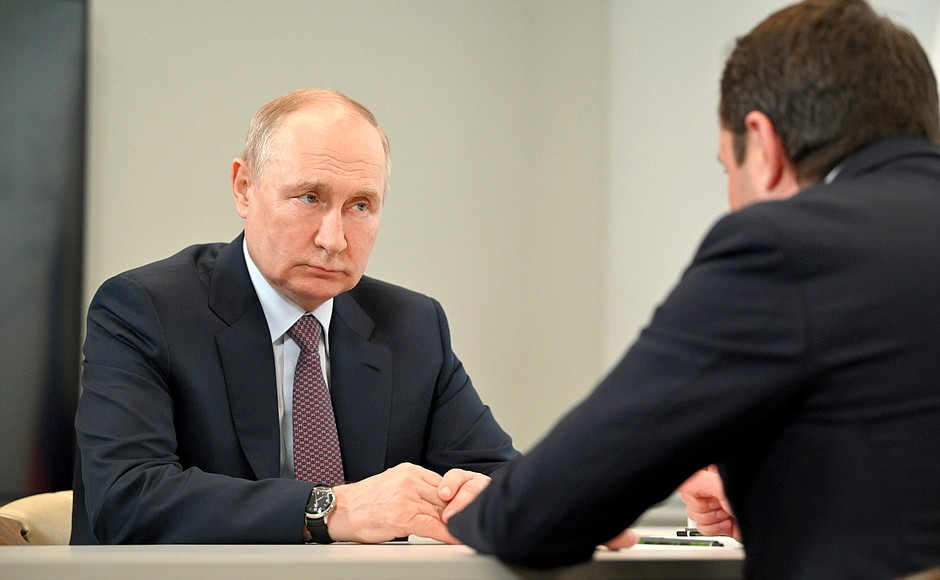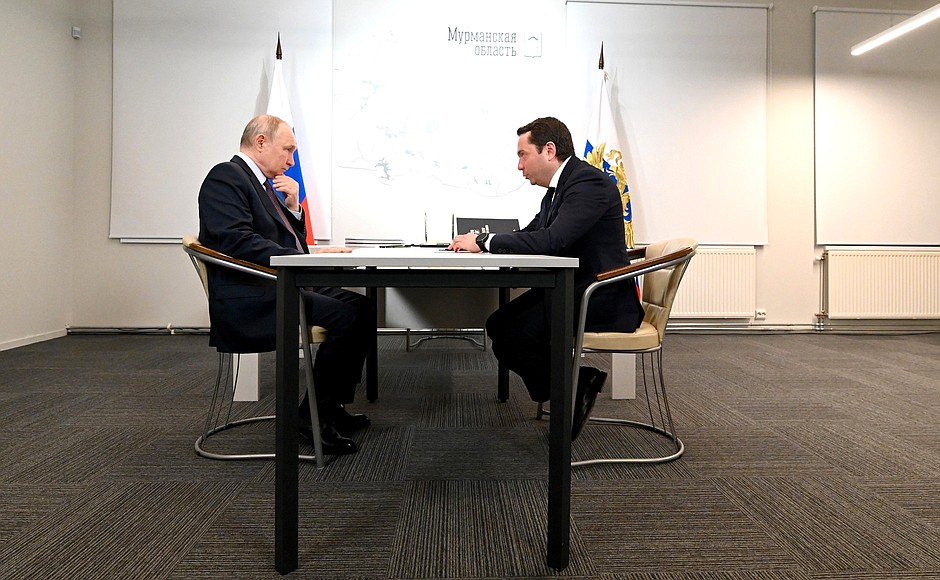Andrei Chibis began his report by saying that, thanks to the President’s support, the expansion of gas distribution in the region is fully under way, and a large infrastructural transport hub is being implemented. All the decisions have been made on lithium; Norilsk Nickel and Rosatom have begun work on the largest lithium deposit in Russia, Kolmozerskoye.
The governor said that all measures of support to military personnel and their families were being implemented. Soldiers of the 200th Northern Fleet Brigade, which the President awarded the title of Guards by Executive Order, the 61st Naval Infantry Brigade, the 80th Arctic Brigade, the Northern Fleet air detachment and air defence are participating in the special military operation. Since it began, the region has sent almost 193,000 different units of what is needed to the front line, from transport to combat uniform. A decision was made to pay the Heroes of Russia 5 million rubles each to improve their living conditions. If the title of Hero is awarded posthumously, this money is received by their family. A centre for social support for families of soldiers has been established, and issues are resolved very quickly, with 13,000 requests received, and 99.5 percent of them are already met.
The North Helps action organised by the United Russia party is being held in the region. About 400 tons of various humanitarian aid have already been sent to the front line and to the new territories. The entire Murmansk region and the entire North are united around the tasks that are being resolved today at the front.
As for the economy, Andrei Chibis said that over a four-year period GRP growth amounted to 19.8 percent; industrial production growth to over 10 percent; investment growth to 16 percent; and a total of 900 billion rubles have been invested in the region over just four years. Despite all the difficulties such as the coronavirus pandemic and the sanctions that are in force, not a single enterprise has stopped operations, and no job reduction has been noted. In addition to their investment plans, key partners, such as PhosAgro, Norilsk Nickel, and NOVATEK, are fulfilling their additional social obligations under special agreements.
Among the issues discussed were the development of small and medium-sized businesses, an increase in nominal incomes, the Work Nearby project, for those who cannot find a permanent job and for school and university students who can take up temporary socially useful work. Another project is the Arctic School. This year, there will be more than 180 special areas in the region’s schools (156 today). School students can choose the area that requires improving, as well as the corresponding design project.



